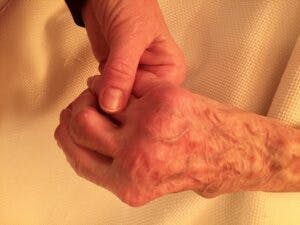What is Parkinson's Disease and How Does it Affect the Body?

Parkinson’s is defined by the Parkinson’s Foundation as “a neurodegenerate disorder that affects predominately dopamine-producing neurons in a specific area of the brain called substantia nigra.”

This means that the dopamine, also known as what allows the brain to signal to move in a smooth and clear way, is not properly being transmitted to the brain. The cause of Parkinson’s is relatively unknown, but much like other diseases may be a result of genetic or external factors. Parkinson’s is a disease that will vary from person to person, as no two cases of this disorder is the same. Individuals that have this disease often experience a wide variety of symptoms that range in severity and frequency, as it may affect each individual’s nervous system and parts of the brain differently.
What are the Signs and Symptoms of Parkinson’s?
The signs and symptoms of Parkinson’s will vary in severity from person to person, as some cases of Parkinson’s may have a quicker progression than others. There are two types of Parkinson’s symptoms: motor symptoms, which is noticeable to others, and non-motor symptoms, often referred to as dopamine-non-responsive, are the most common type of set of symptoms. Both sets of symptoms can present themselves as:

Motor Symptoms:
- Slower movements
- Loss of ability to perform voluntary movements of the body
- Stiffness of the whole body or a particular body part
- An uncontrollable tremor that appears when the body is at rest with no momentum
- Trouble walking, standing or balancing body weight
- Difficulty controlling facial expressions
Non-Motor Symptoms:
- Depression
- Anxiety
- Difficulty swallowing
- Low blood pressure
- Decline in cognitive functions
- Constipation
- Difficulty sleeping
- Pains that are inexplicable
It is incredibly important to remember that Parkinson’s is a very serious disease and the symptoms of this illness should be treated as such. If you or a loved one feel as though they are experiencing any signs or symptoms of Parkinson’s, it should be brought to the attention of a medical professional immediately, especially if they feel the symptoms have gotten worse over time. A doctor will be able to diagnose an individual with this very rare disease or attribute these symptoms to another type of illness or disease.
Is Parkinson’s Treatable?
Parkinson’s is not a fully curable disease and the progression of the disease cannot be stopped from treatment. Additionally, it is a complicated disease, as treatment is often much life the symptoms of the disease: no two cases will be identical. Treatment plans will be given to each individual with Parkinson’s based on his or her symptoms, the progression of the disease and how the individual wishes to carry on with treatment. Treatments for Parkinson’s may be through prescribed medications, lifestyle changes or surgical therapy. If Parkinson’s goes untreated, it can lead to complications stemming from the symptoms of the disease and a worsened quality of life as a result.\

Parkinson’s Disease in the Elderly
Parkinson’s is known to occur mostly in the elderly population, as only 5% of Parkinson’s cases occur in patients before the age of 60. As we age, quality of life is one of the most important aspects of our well-being as individuals and human beings. Most elderly individuals have a higher chance of developing Lewy bodies, which damage neurons and allow Parkinson’s to take its course within the body.
Parkinson’s in a senior is often a different situation from a younger individual with the disease, as they often feel the effects of the disease more so than younger people. This can be attributed to the general weakness of the body as the human body ages or the increasingly sedentary lifestyle that the elderly lives. Parkinson’s in the elderly is often treated by giving the patient options to make their quality of life much better while they live with the disease.
For seniors, a disease like Parkinson’s can heavily impact their life and quality of life. Depending on the side effects and symptoms that he or she feels, an elderly Parkinson’s patient may require full time supervision and assistance. For some, the neurological disorder may become so debilitating that he or she needs to move into a full-time facility where they are supervised 24 hours a day. However, for some seniors he or she may not want to fully up-root their life and move into a facility that doesn’t feel like home. That is where home care can step in to improve quality of life and care for them when they need it the most. Home care services can give a Parkinson’s patient the ability to live a more fulfilled life, while coping with the disease they have.
Parkinson’s is a complicated and often misunderstood illness. When it is caught early, treated properly and couples with a healthy environment, Parkinson’s disease does not have to define an individual.
